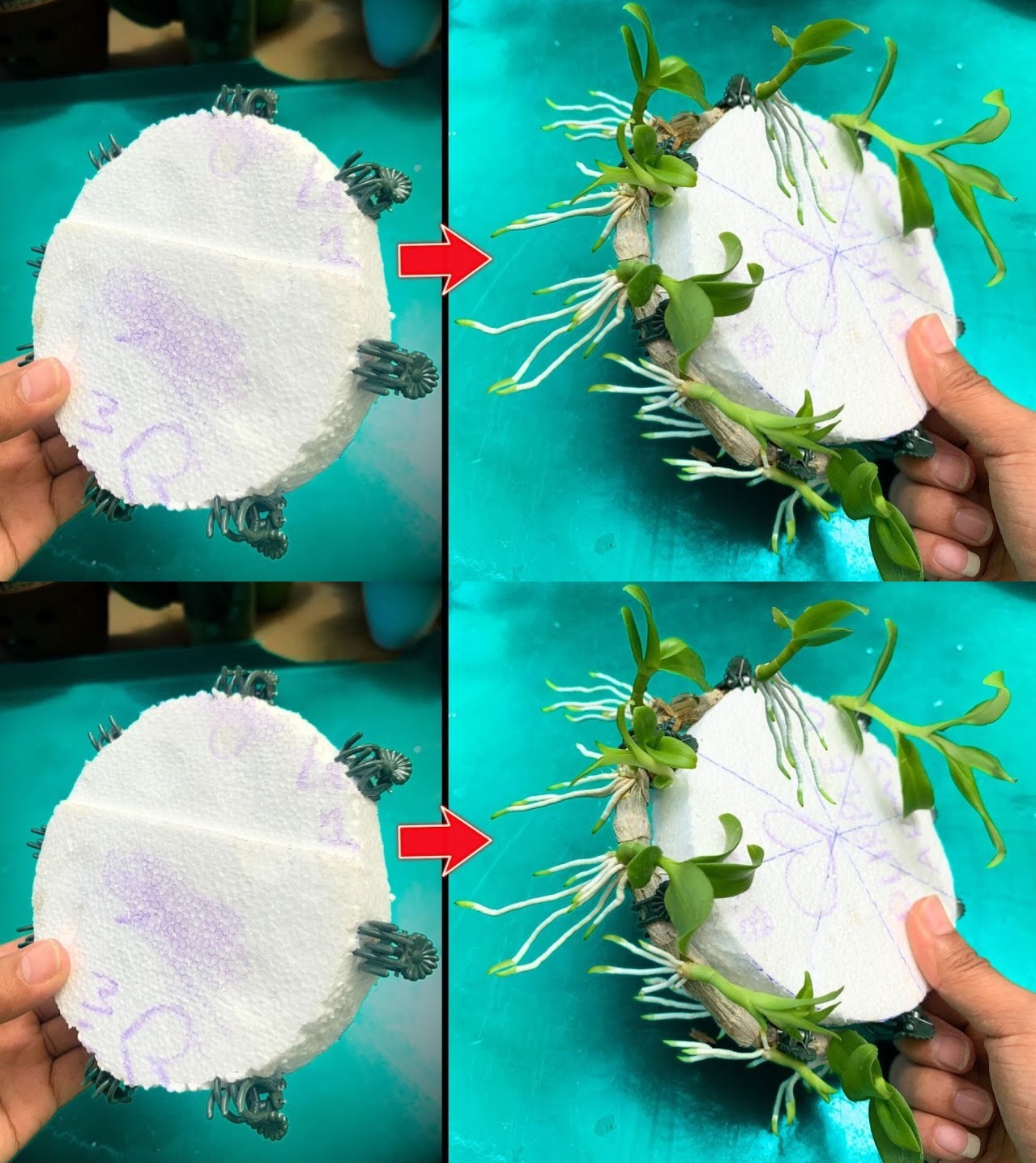We sometimes think of orchids as extremely delicate flowers that need constant attention. This is partly true, but on the other hand the orchid is also a very strong and resilient plant. Sometimes you can get so sick that you think there’s nothing else you can do. Precisely in these cases, instead of throwing it away, here we show you how to save and revive a dying orchid without flowers and with dry leaves.
The orchid is a flower that looks like a model ready for a fashion show. Its beauty is gladly kept at home to enhance some point of the house. However, rushing and distraction can cause some discomfort. Don’t be surprised then if the orchid loses flowers, withers and dies because of these mistakes.
The plant dies only if all the flowers have fallen off and the leaves have dried out, and the roots eaten away by rot. It’s not a pretty sight, but in this case there’s not much to do.
On the other hand, if at least one leaf is still green on the plant, we don’t throw it away, because the plant isn’t dead yet. Maybe with a little attention you can recover.
Table of Contents
- Instead of throwing it away, here’s how to save and revive a dying orchid with no flowers and dry leaves
- Repotting the Orchid
When only one or two leaves remain on the plant, it’s best to intervene immediately to save it. That the orchid at some time of the year can lose all its flowers is a completely normal fact. It is not normal for the leaves to dry out in addition to the flowers.
To recover an orchid plant, which has only one or two leaves left, you proceed in this way. First of all, let’s free it from the pot by removing all the soil. Now we’re going to go check the aerial roots, which should be dead but not all, if there’s still a green leaf left.
With disinfected scissors we cut what is left of the dead roots and dry parts, leaving what is left of those that are still alive. Having done this cleanup, we now prepare the new location for the seedling.
Take a transparent glass, into which we pour 4 parts water and 1 part hydrogen peroxide. The latter serves to ensure an environment without threats to the plant, but also to accelerate the birth of the roots. The water should only cover the roots without touching the leaves, otherwise they will rot.
We leave the seedling in the water for about 40 days. We will then see that the roots have recovered and perhaps new ones have been born. The leaves are also in tip-top shape.
Repotting the Orchid
At this point it is necessary to place the orchid in the vase. You can get a new pot and new soil. Some soil is placed at the bottom and then the seedling is placed, bringing the level of the soil under the leaves. It is watered and slowly the orchid, as the months go by, will regain its life and beauty.
